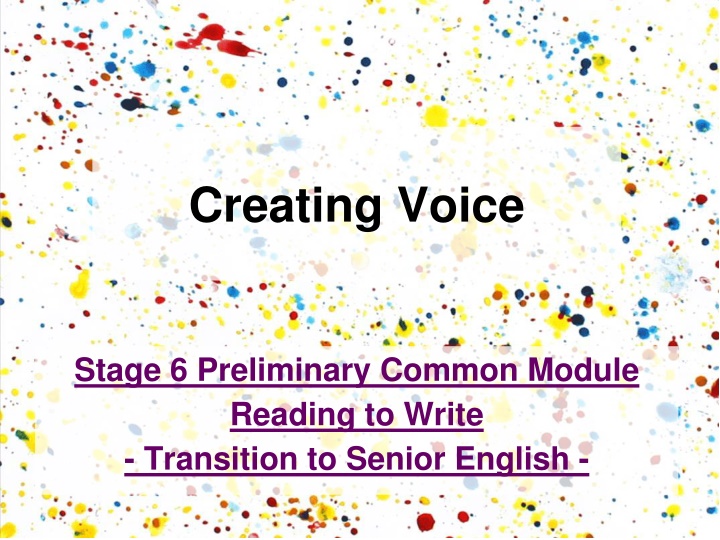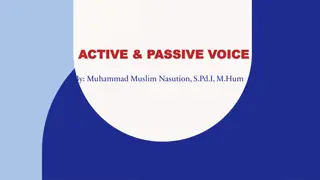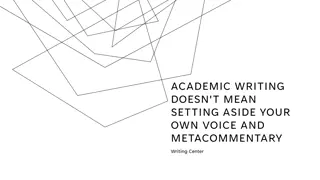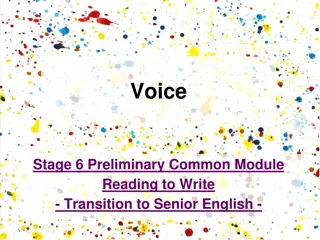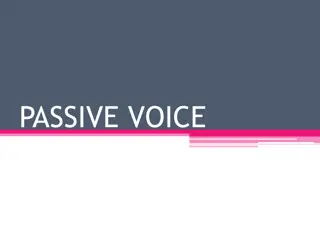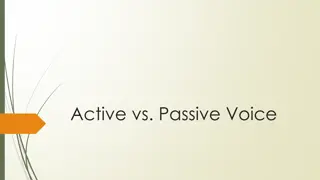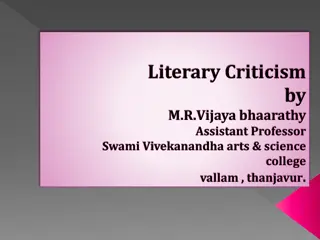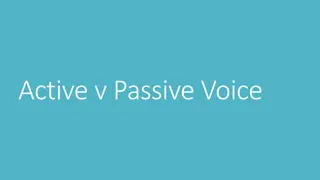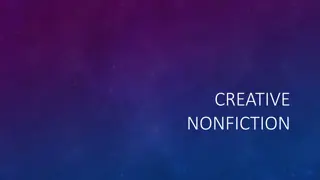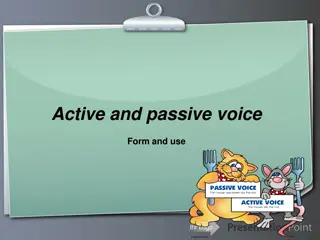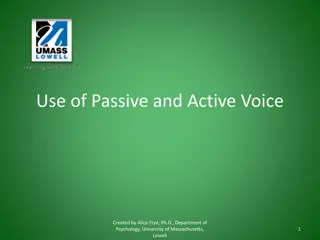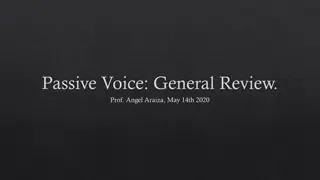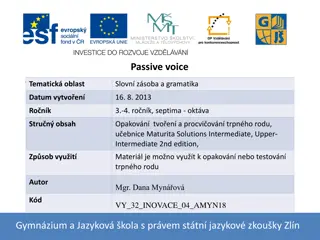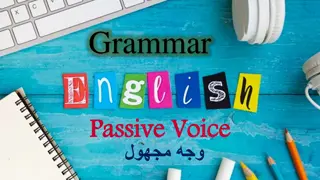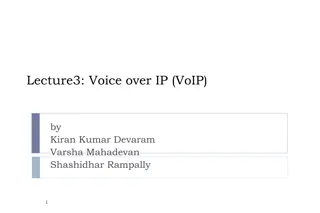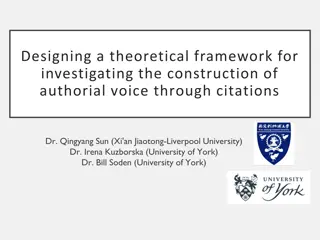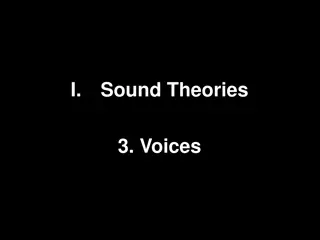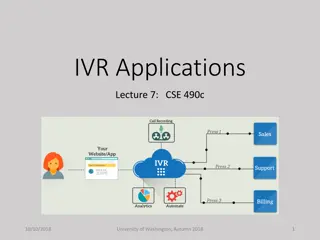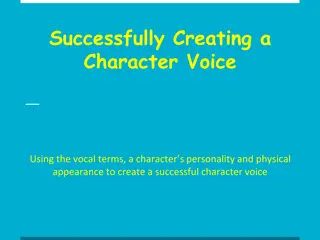Discovering Literary Techniques for Creating Voice in Writing
Explore various literary techniques such as nouns, adjectives, adverbs, verbs, pronouns, dialogue, repetition, punctuation, imagery, irony, and setting to enhance voice in writing. Delve into how these elements shape characters, set moods, and convey meanings, offering insight into crafting compelling narratives and unique authorial voices.
Download Presentation

Please find below an Image/Link to download the presentation.
The content on the website is provided AS IS for your information and personal use only. It may not be sold, licensed, or shared on other websites without obtaining consent from the author.If you encounter any issues during the download, it is possible that the publisher has removed the file from their server.
You are allowed to download the files provided on this website for personal or commercial use, subject to the condition that they are used lawfully. All files are the property of their respective owners.
The content on the website is provided AS IS for your information and personal use only. It may not be sold, licensed, or shared on other websites without obtaining consent from the author.
E N D
Presentation Transcript
Creating Voice Stage 6 Preliminary Common Module Reading to Write - Transition to Senior English -
Techniques in Creating a Sense of Voice In creating a sense of voice, a wide range of literary techniques is brought into play: Nouns, adjectives, adverbs, verbs Pronouns Dialogue Repetition Punctuation Capitalisation Metaphors and similes Hyperbole Irony Setting
Nouns, Adjectives, Adverbs, Verbs These can give us insight to the character s voice and how it is being used but also adds to understanding the author s voice. If an author focuses on nouns, s/he is creating a concrete world. The addition of adjectives and adverbs can add to mood in setting or in the event that is happening. This will affect the voice of the texts. The verb form will also affect how the meaning is conveyed. Some authors have a limited vocabulary while others choose to embellish their writing this contributes to the author s voice.
Pronouns, Dialogue, Repetition Pronouns: First, second or third person all position the audience differently. The composer s choice of writing in first or third person will affect the way the text s meaning is conveyed. Dialogue: this alerts us to the values of individual characters. Each character has a particular voice, created by using words in different ways this reflects the character, beliefs and attitudes of the person. Dialogue may utilise colloquial, expletive, emotive, and imperative language amongst others. Phonetic spelling may create accent. Repetition: is about what is important; it can also show us the type of person who is speaking he/she might be obsessed with the point being made.
Punctuation Punctuation: Changes the rhythm of speech. Lots of full stops with short sentences may sound frantic. Commas around phrases in the middle of sentences slow down the rhythm and suggest thoughtfulness. Exclamation marks add emphasis.. Lack of punctuation may suggest breaking the rules. In poetry, lack of punctuation may mean a refusal to abide by rules. Punctuation can break up ideas, add pauses, indicate thought. Capitalisation: conveys loud sound or importance
Imagery, Irony, Setting Metaphors and similes: create images which we associate with feelings. We can visualise the scene but also understand the mood. Hyperbole: exaggeration can amuse or can be ironic. It can be associated with falsity. Irony: the difference between what appears to be the case and the reality of the situation. This gap between appearance and reality creates a sense of mismatch and draws our attention to or criticises an idea. Setting: settings establish expectations and offer the background to events or sometimes a contrast to characters. This provides contextual voice tells us about the world the story exists in.
Your Composition Using the information given above, look at your composition and write a paragraph about how you as an author use these techniques. Include examples and discussion of techniques that convey the voice. Also consider the learning we have completed for Point of View and Voice in prior lessons.
Using the knowledge we have developed, read and edit your own composition draft, developing the use of voice in your writing. Utilise your teacher s help to assist you in further improving and refining your piece. This is your opportunity to share your voice!
